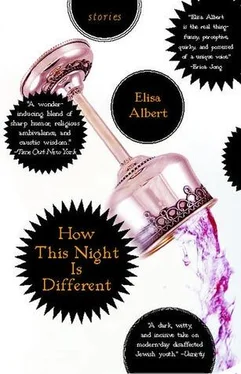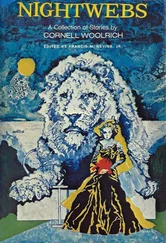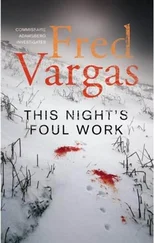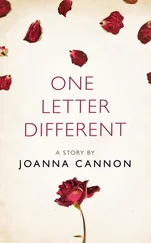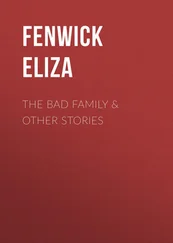“That china was Grandma’s dowry when she married your grandpa Jack,” Marilyn said after a moment, like amusing, disconnected trivia. Grandpa Jack was, naturally, even longer gone than his blushing bride. There was a picture of them, fingers intertwined, sepia cheeks pressed delightedly together, dressed to the nines, about to leave on their honeymoon, front and center on top of the baby grand in the living room. It was as disquieting an image as any flayed and emaciated Catholic Jesus-on-the-
cross: They had died for Joanna’s sins.
Marilyn briefly consulted her recipe, pulled nutmeg off the spice rack, and added two decisive shakes to the bowl. Charoset was Joanna’s favorite part of Passover by far. More even than the little individual dipping bowls of saltwater meant to approximate tears.
“I’m sorry, Mom!” she said suddenly, attempting, in an off-center hug, to bury her face in Marilyn’s shoulder. “I’m so sorry!” It seemed to Joanna that the missing twelfth plate should somehow exacerbate her mother’s old mother-loss wound, twist and wring her psyche, and dredge up all the pain of losing one’s mother — being, in fact, an orphan — might entail. Joanna couldn’t imagine it: God dead. Marilyn gave her a friendly little shove.
“Would you please spare us the drama and finish setting the table? Fifty people are going to be here in a half hour and You. Are. Not. Helping. Me.” This was punctuated by the shaking of her hands over the mixing bowl, as though the bits of spiced apples and nuts sticking to her fingers were themselves being selfish. When she was expecting company, Marilyn tended toward hyperbole and (dare we?) hysteria. The Renaissance painters had missed a sprawling goldmine when they’d neglected to portray the Martyrdom of the Put-Upon Passover Seder Hostess. There were exactly twelve people coming: Aunt Barbi and the axis of asshole (Uncle Larry and cousins Kevin and Jason), sad-sack still-single Uncle Steve, Aunt Jackie and her silent, obese boyfriend Bob, studying-for-about-six-years-now-to-become-a-
beautician cousin Stacey, Joanna, Marilyn, and Ron. And Harris. Joanna’s boyfriend of almost a year. A non-Jew. (“I don’t like to be defined by what I’m not,” he would mock bristle at that. “I’m also a nonmidget. A non-Hispanic. A nonfemale.” “And a nonnonagenarian,” Joanna would point out, because, like her, Harris had a dumb sense of humor. “Ha,” he’d respond. “You said ‘nonnonagenarian.’” Then they would talk about other things.)
So Joanna reluctantly got out a plate from the grotesque second-tier Passover set — ceramic yellow with pretty pink daisies. It looked obscene, a monstrosity among all of Grandma Bess’s serene, expensive red poppies. Like a hooker at high tea. She set it at her own place, disgusted by the awful aesthetic of it, then allowed herself a quick, feral itching interlude, hand down the waist of her jeans, facing the corner of the dining room, hunched over like a pervert jerking off in public. The reprieve was borderline orgasmic — she saw rainbows, she saw stars — with a nice little thread of pain sliced through like gold leaf. She let out a small involuntary sigh and examined her fingers: white, pasty, not altogether too heinous smelling, considering.
In the kitchen Marilyn was racing around like Julia Child on crack.
“All right,” Joanna told her. “The table is set. Can I be excused?” Instantly she regretted the sarcasm in her voice. Marilyn made a big show of rinsing her hands off and drying them on a dishtowel, which she then folded decisively in quarters and set down next to the sink. Joanna leaned against the counter, arms crossed, directly in her mother’s path. “I really hope you’re not expecting me to say the Four Questions, because I’m fucking thirty-one years old and it’s not happening.”
“I know how old you are.” This with a defeated tone, in which Joanna could hear each and every one of her mother’s many harbored disappointments: an only child, unmarried, dating a goy, spectacularly unaccomplished in her chosen craft, living far away, tattooed, still accepting the occasional bailout check from Daddy. The list went on. Breaker of plates, eschewer of intergenerational cultural responsibility, what else?
“Good,” Joanna replied, like a nine-year-old. She had expected more of a fight, and didn’t know what to do with her reserve of belligerence. Her crotch burned.
“Maybe your friend Harris can do it,” said Marilyn. “That would be appropriate, don’t you think?” At which the doorbell rang.
“Elijah!” Ron yelled from the den, where he was doing roughly ten times the necessary Seder prep: cutting and pasting readings from eight different Haggadot, making place cards (which he would any minute ask Joanna to illustrate “because you’re the talented artist, Jo-Jo”), assigning roles in the skit wherein Moses asks pharaoh to pretty please Let [His] People Go. Sweet Ron got such immense pleasure from the claim that anyone at the door on Passover was, in fact, Elijah. It never got old. For the rest of the evening, whenever the doorbell rang, he would invariably pause, straight faced, dopey, joyful, before making the joke anew.
“I expect you to wear long sleeves to the table, Joanna,” Marilyn said, her parting shot. “Please don’t make everyone uncomfortable.”
“Yeah, sure, why not?”
Joanna opened the front door, and Harris— Oh, Harris! — held out the urgently requested box of Monistat 7 and a pretty bunch of yellow tulips. “Hell-o,” he said too brightly, doing a little bow as if they were meeting for the first time. Behind him the afternoon was ending, and the light was prismatic and warm, like in a well-taken photograph on specifically appropriate film. Joanna felt a little joy hiccup bubble up her center. Her very own bass-and-drums-playing borderline-hippie college football champion. The Gentle Giant, Joanna’s friends called him. He had gifted her with a painstakingly compiled homemade CD mix on their second date, full of all sorts of hidden, funny references to things they had talked about on their first, some of which she was still decoding. He was perfect in bed: ravenous, unshockable, but not the slightest bit sleazy. Did such men really exist?
“Why, thank you,” she said, taking the tulips and the Monistat (which effected, downstairs, an anticipatory wave of relief) with a ladylike curtsy.
He raked a hand through his hair (sand colored, shaggy, lovely) and stepped over the threshold. “Do I look okay?” Brown Hush Puppies, khakis, an untucked periwinkle blue shirt unbuttoned to reveal the white T-shirt underneath. Joanna, at five ten, came up to his chest, which was, for a tall girl, a sexual intoxicant like no other. He could have worn Italian slides and Lycra, it didn’t matter. She could not have been more attracted to him. It was like a sickness.
“Perfect,” she told him. “Beautiful. Don’t be nervous.”
“Who’s nervous?” He shrugged, pretended to look over his shoulder, wrapped his arms around her. When he kissed her she felt that thing —that thing she might have identified as love, as happiness, had she any concrete previous experience with either to which she could yoke it.
After Josh “the Warthog” Weinstein, there had been a whole string of schmucks, Nice Jewish Narcissists all. All these guys were the same: lionized beyond repair by doltish, worshipful mothers, interested ultimately in doltish, worshipful girlfriends-cum-wives. These boys invariably rejected the hell out of her (being, as she was, neither doltish nor particularly worshipful), and in return, she developed a steaming, pulsating, wholly unwieldy contempt for the summer-camp-whoring lot of them. Joanna had shed actual tears in a therapist’s office when she was twenty-eight, after yet another disastrous go at homoethnic dating. “I’m an anti-Semite,” she’d sobbed in response to the standard “Why are you here?” “I hate Jews.” The therapist had recommended both Women Who Love Too Much and Portnoy’s Complaint and sent Joanna on her way.
Читать дальше
